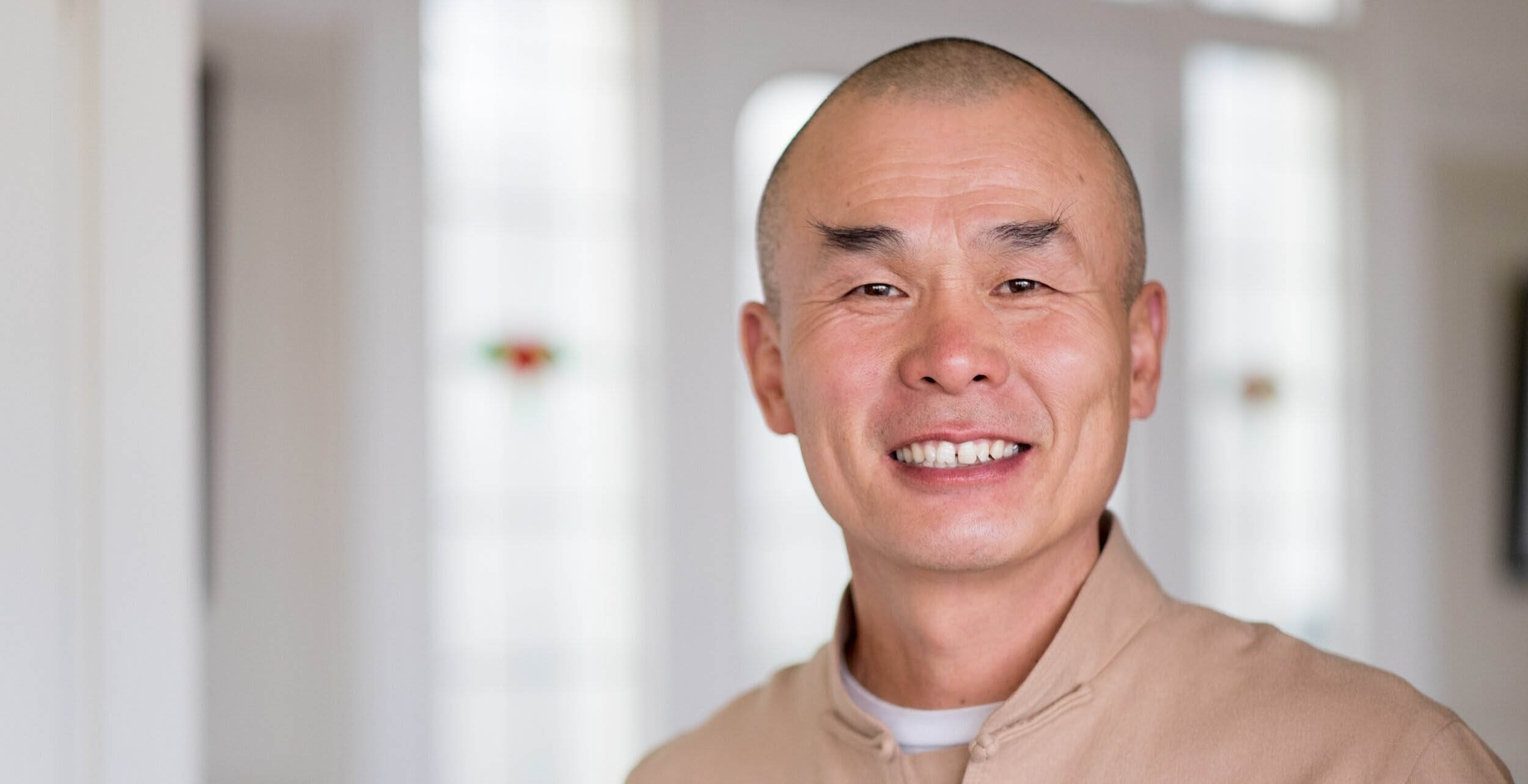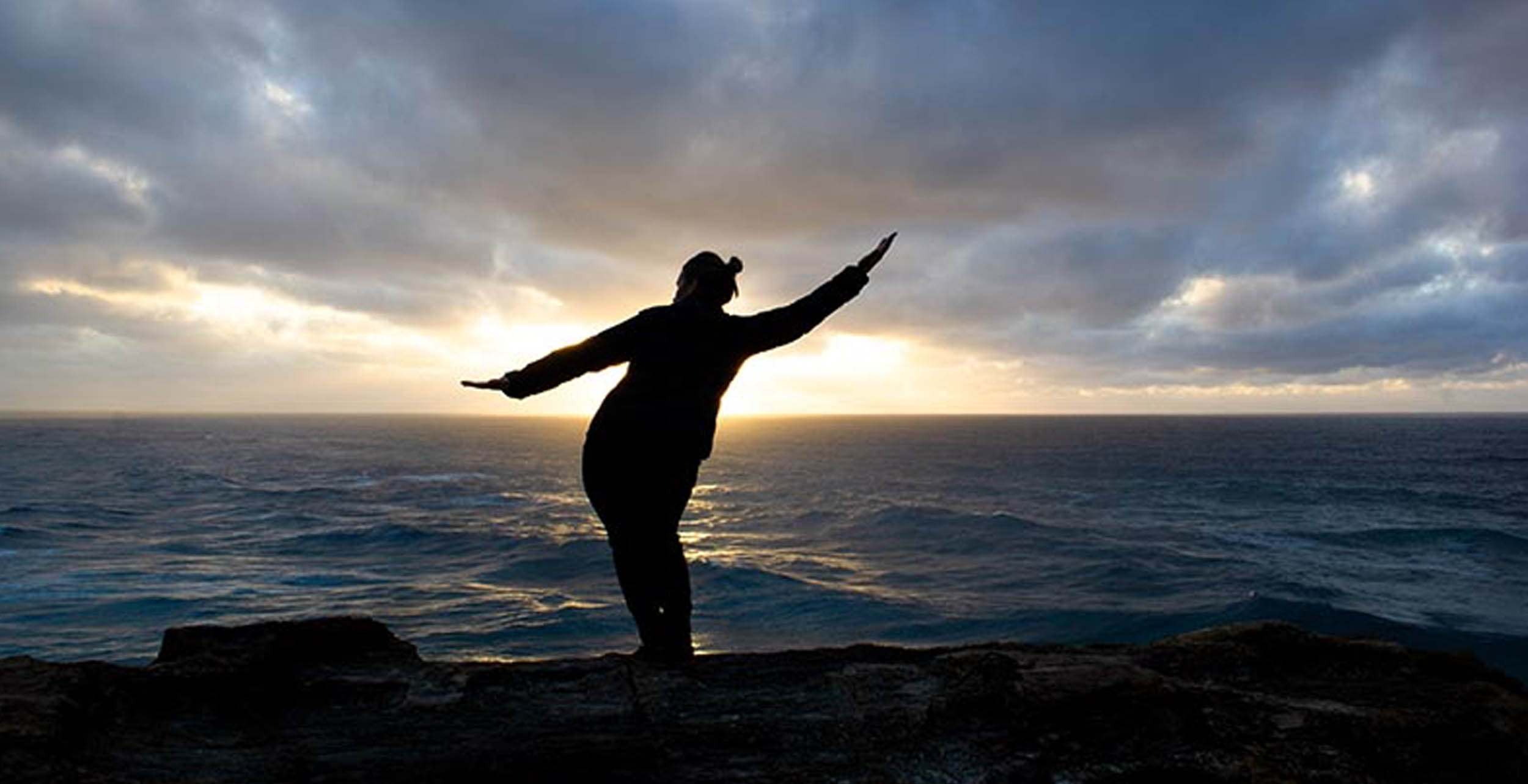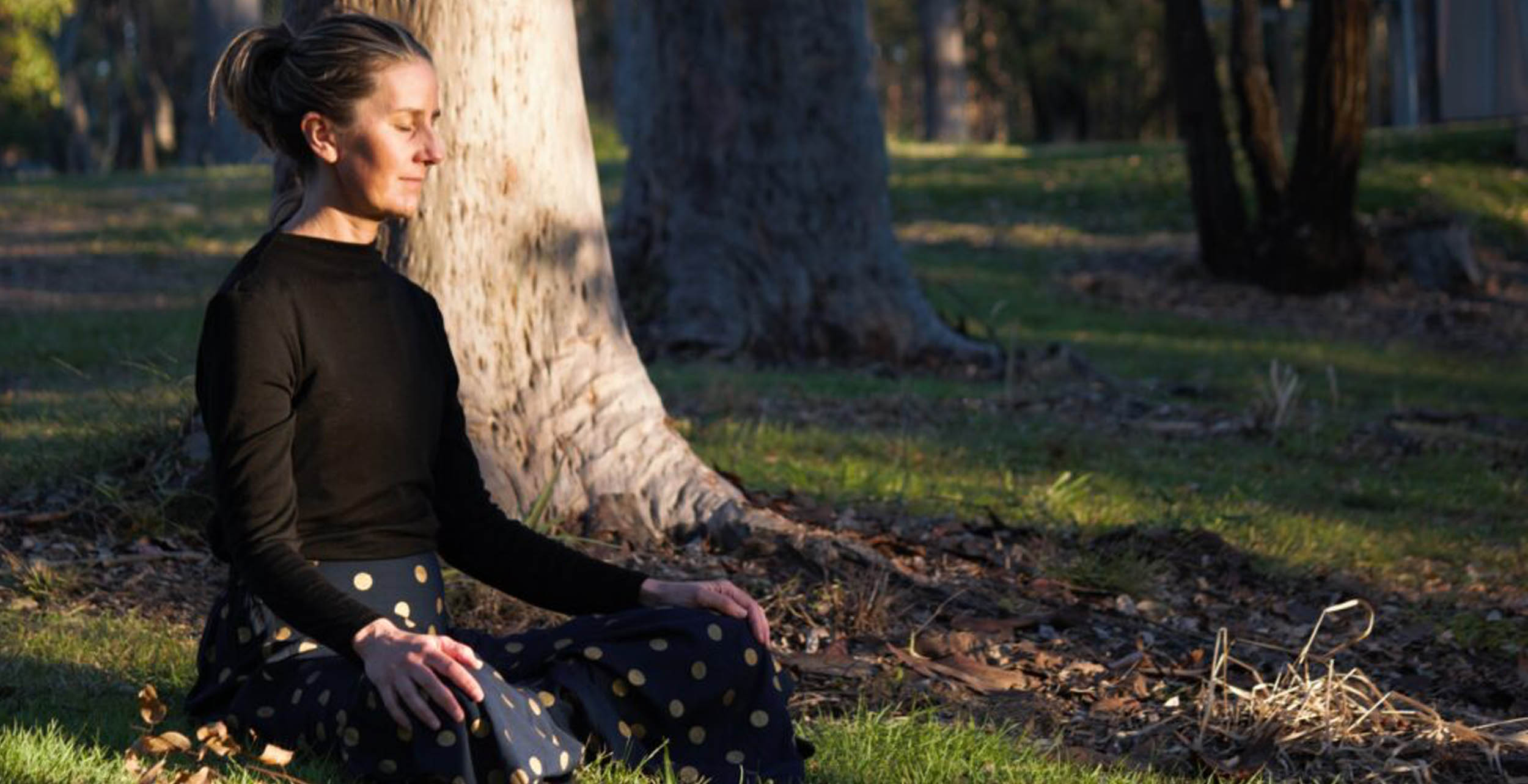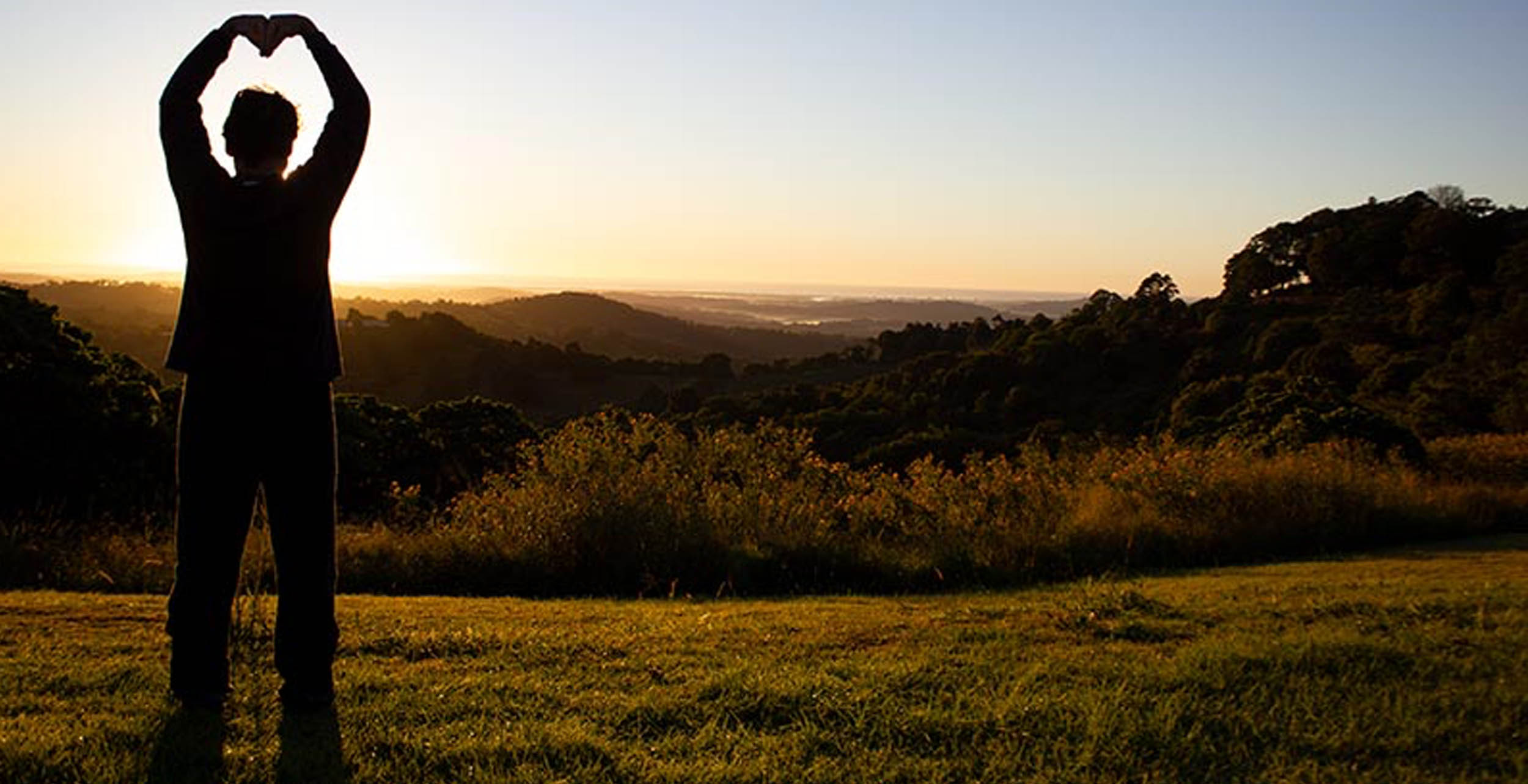Yuan Tze, the founder of Ren Xue
Born in a small ancient coastal town in the Jiangsu province of China, Bin Liu later adopted Yuan Tze as his life cultivation name. Not long after he was born, he stopped eating. Neither his parents nor the doctors could make him resume eating and he became very weak. A Daoist monk offered to help. At six months old, Yuan Tze was taken by the monk to live with him at his temple.
At the age of four (1966), the Cultural Revolution started so his monastery life came to an end. The monks were driven away, the monastery was taken and used for civil purposes, and Yuan Tze was sent back home to live with his family.
He didn’t participate actively in formal education. However, during his school years, Yuan Tze secretly studied traditional teachings from old books, which were strictly banned at the time. He avidly absorbed the traditional wisdom that made him feel much more at home than the school curriculum. The challenge of school years was not limited to academic work. Being malnourished and small, Yuan Tze became a target of bullying at school. This motivated him to begin martial arts and basic Qigong training when he was about seven. The training gave him the ability to protect himself and the other kids who were bullied at school. Not surprisingly, the school became bully-free.
In his early teen years, he started to realize that police-style enforcement was not the answer; there was much more to changing people’s behavior. So he started to look beyond. Living through the turmoil of the Cultural Revolution, Yuan Tze desperately wanted to understand why there was so much pain and suffering in human society. His strong yearning to help himself and other people led him on a path of search and discovery.
In 1979 he joined the navy and worked in the supply department until 1982. During those three years, he engaged in formal Daoist Qigong training. At that time Qigong was forbidden by the Chinese government, so training was done covertly. Thus began his serious training in Qigong. After leaving the navy, he was transferred back to his hometown and worked in business for the next ten years. During those years he delved deeper into Qigong training and the study of Qigong theories, Daoism, Buddhism, Confucianism, TCM, and some folk arts and medicine. He received training from a number of high-level and well-respected masters in various areas. Some of them were reclusive hermits who accepted only one or two students in their lifetime.
They did not pass on their knowledge and teachings lightly. Yuan Tze considered himself very blessed to have had the opportunity to learn from these masters and receive their valuable teachings and strict traditional training. He gradually acquired a profound understanding in these disciplines.
Yuan Tze started teaching Qigong and doing healing in his early twenties. Later, he gained a high level of recognition for Qigong in China: becoming a Special Member of the Chinese Qigong Science Research Association, the highest governing Qigong institute in China.
His healing helped many people clear their problems and many ‘healing miracles’ were witnessed. However, many of those same people who had been helped returned after some time because either their problems had recurred or new problems had appeared. It became clear to Yuan Tze that, as effective as they could be, Qigong practice and Qi healing alone were not enough to address the root causes of illness. He realized that illness and the pain and suffering caused by other problems in life often shared the same sources. Thus began his quest for a more effective tool that would address the root causes of all problems, including illness.
In his early 30’s, Yuan Tze began creating a new Qigong system. At that time he came across Zhineng Qigong. Since both the Zhineng Qigong methods and also its underlying ideas were fairly similar to his own, and since Zhineng Qigong was already being practiced by a large number of people, he decided to postpone the idea of promoting his own system and chose to study Zhineng Qigong at the Huaxia Centre. At the age of 33 he became director of a recovery department unit at the centre. The unit housed people with serious illnesses and had about 10 instructors/healers and 400 patients. During that period Yuan Tze had the highest rate of success in dealing with illness at the Centre, including cancer (44% cure rate) and lithiasis (stones, commonly in the kidney and gall bladder). There were also cases of regeneration of tissues and organs that had been surgically removed, including cranial bones, gall bladders, and uteruses. In one amazing case the left kidney of a 39-year-old medical doctor grew back even though it had been removed in childhood.
Nonetheless, his time at Huaxia Centre demonstrated to Yuan Tze the urgency for a more effective tool. In 1996, he felt it was time to leave Huaxia to focus on developing this tool. Over the next four years, he established two Qigong centers in Guangdong Province. In 2000 the Chinese Government, having allowed Qigong activities for nearly two decades, banned all Qigong organizations and activities. Yuan Tze had no choice but to close his centers and stop all his Qigong-related work. Beginning in September 2000, he focused more intently on the totality of life, especially human consciousness. He also searched for teachers and learned non-Qigong traditional internal methods, including Internal Yang Style Taichi and Bagua. During that time, the basic framework of a new system was taking shape.
In 2002, Yuan Tze left for New Zealand. The system that had been long time in gestation was established. It was named Yuan Tze Human Life Science and later changed to its original Chinese name, Yuan Tze Ren Xue (圓子人學), or Ren Xue (人學) in short. Yuan Tze started to formally promote Ren Xue in New Zealand and around the world. Ren Xue teachings proved to be very effective in helping people understand their problems and bring profound changes to their lives. To date, Yuan Tze has published five books of his teachings. He believes that Ren Xue can transform society into one that is more harmonious. Yuan Tze Ren Xue offers a unique path for this transformation, with powerful tools that draw from both traditional wisdom and modern developments.
In October 2003 the Yuan Tze Centre was established in Wellington, New Zealand. In the following ten years, Yuan Tze focused on developing the Ren Xue system and sharing its teachings with the people he reached. As Ren Xue became more and more established, Yuan Tze saw the need for a Qigong system that would be fully consistent with Ren Xue theory. Such consistency is essential for the integrity and efficacy of Ren Xue.
To fill this gap, in 2013 Yuan Tze created a new Qigong system – Yuan Gong. In 2014, Yuan Ming Medicine was created as another Ren Xue tool for healing life. Together, Yuan Gong and Yuan Ming Medicine serve as Ren Xue’s two subsystems for practical application.
During the past three decades, Yuan Tze has reached and touched many people through his work. He is able to convey profound wisdom in the most accessible way and his presence always inspires those who want to uplift their lives. Although viewed by his students as a high-achieving teacher, Yuan Tze sees himself an ordinary person who is not on a ‘special level’ and does not have any ‘special abilities’. He considers himself a genuine and diligent life cultivator who is enthusiastic about sharing what he has achieved with other people. For him, life is an ongoing process of realizing the goal of Zi Du Du Ren (uplift yourself and help others to do the same).
Ren Xue
Understanding and aligning with the natural laws of life

What is REN XUE?
Ren Xue is the system of theories and teachings created by Yuan Tze with the goal of understanding and thereby elevating our life.

Yuan Qigong
Yuan Qigong is a Qigong system that supports the positive transformation of all areas of life, body, qi, heart and consciousness.

Yuan Ming
Yuan Ming is a system of treatment methods based on Ren Xue theories, modern science and traditional chinese medicine.

What is Qi?
Qi is our life force, the fabric of all existence. Understanding Qi is vital to achieving a healthy and harmonious life.
